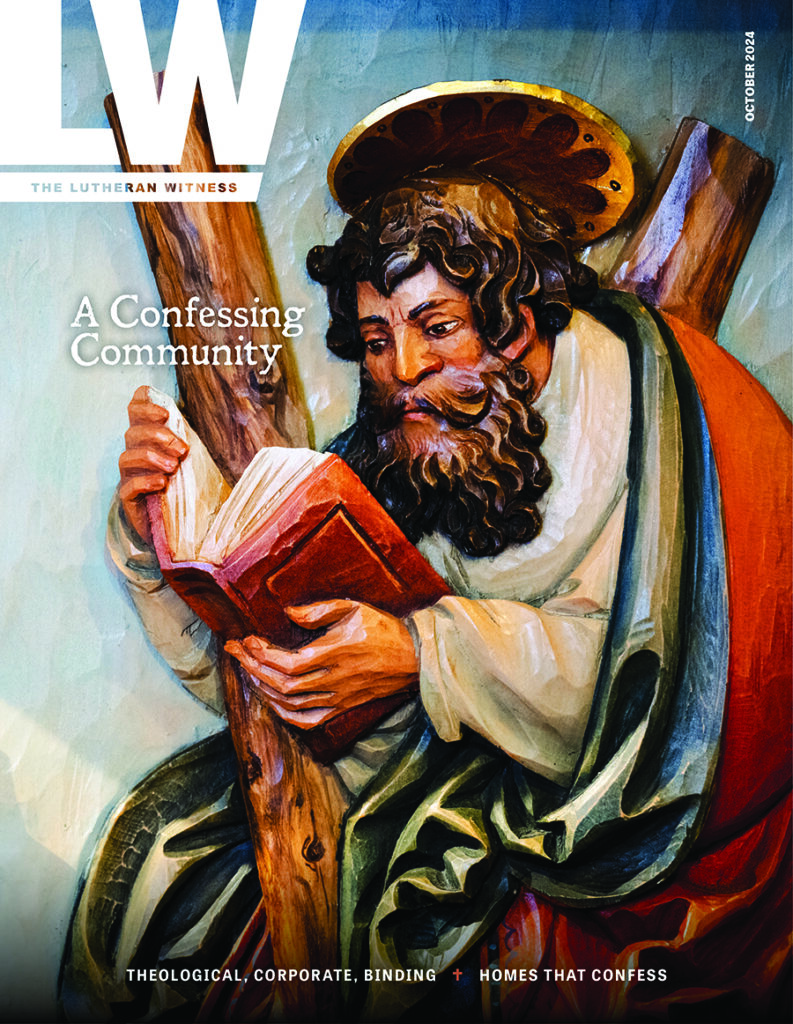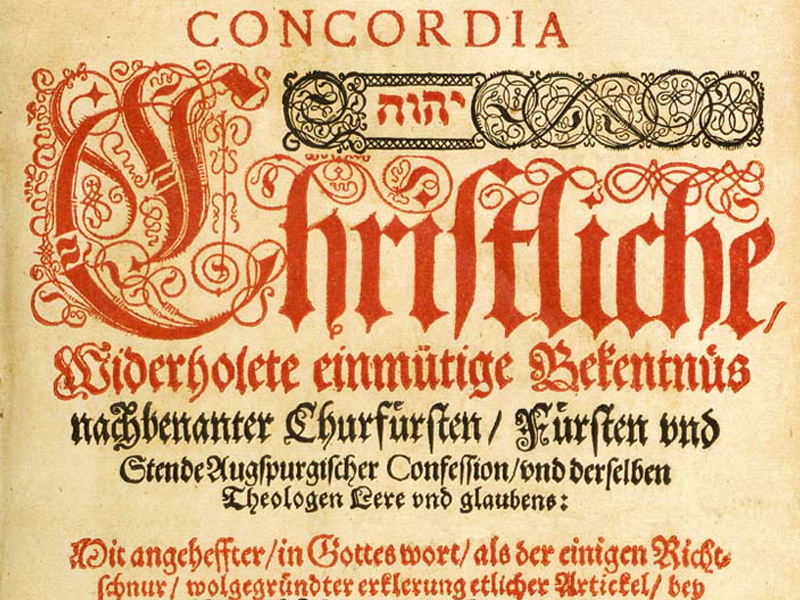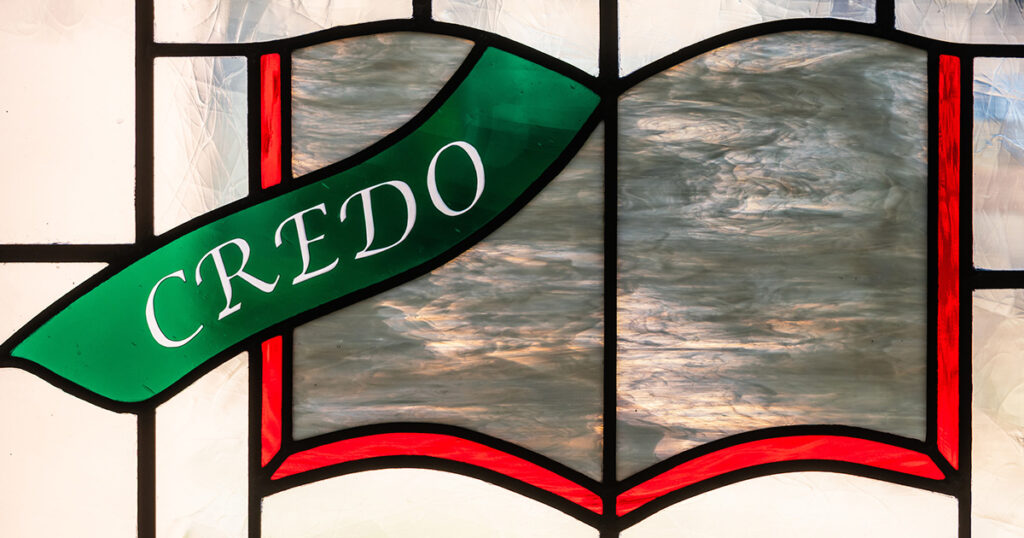“So everyone who [confesses] Me before men, I also will [confess] before My Father who is in heaven, but whoever denies Me before men, I also will deny before My Father who is in heaven” (Matt. 10:32–33).
Confession is not optional in Jesus’ book. The Christian confesses the faith before the world. The ESV translation uses “acknowledge,” and that’s fine as far as it goes. But the Greek word implies more, a unity in speaking, to “say together,” as you’ll read in Joel Biermann’s article in this issue. We must confess, and we must speak together as the whole Body of Christ (see Richard J. Serina’s article).
Confession also takes place within the framework of a hostile world. When Jesus tells the disciples they will confess Him before the world, He is encouraging them to have no fear of the world. The Father knows them; He knows the hairs of their heads and will surely work for their good.
All throughout the church’s history, there have been those who confessed into hostility and danger. All the apostles but John died for their confession of the faith. Many Early Church fathers entered the kingdom of heaven through martyrdom because of the confession they made. And even our Lutheran forefathers who signed the confessions contained in the Book of Concord did so knowing that it might mean death.
We do well to look to these forefathers and learn from them how to approach the task of confession. Richard J. Serina explains how the Lutheran Confessions were theological, corporate and binding upon those who subscribed to them. Then, three of our authors take on confession in the three estates: Joel Biermann explains how Christians form a confessing community, Liv Booth shows how to cultivate a home that confesses the faith, and Laurence White provides fundamental guidelines for building and adorning sanctuaries that confess Christ.
Confession has not died. In fact, as we face a world hostile to the Gospel, we must be even more prepared to confess what we believe and why we believe it.
That’s also why I’m delighted to ask you to join us in reading through a portion of the Book of Concord next year. Brady Finnern, LCMS Minnesota North District president, has put together a reading program that will take us through the Formula of Concord and related texts in a year. In each issue of LW next year, he will write a short explanation of the readings. If you don’t already have one, get a copy of Concordia: The Lutheran Confessions and join us in this adventure.
Confessing with You,
Roy S. Askins
Executive Editor, The Lutheran Witness








This topic is not just imperative; it is urgent, in all times, in all generations, in all places where Christians call their earthly residence. Without acknowledging Matthew 10:32-33, the Gospel message cannot flourish. Where Christians decide that they will leave evangelizing to pastors, missionaries, and ministries, and do not confess Christ before their families, relatives and friends, and the next door neighbor, they are allowing secularism to overwhelm faith. What results is missed opportunities to witness and confess the Lord to the lost around us. We do no good to our neighbor by being silent about Christ and the Gospel. Confessing Christ need not be done in an in your face, obnoxious or judgmental manner. The Holy Spirit, at work in the heart of the believer, guides us to use the right words, at the right time and place, as the opportunity presents itself. This is how the Gospel was confessed, person to person, neighbor to neighbor, stranger to stranger, and there is no secret formula or strategy other than just to do it. Soli Deo Gloria
“But test everything; hold fast what is good” (1 Thess. 5:21 ESV).